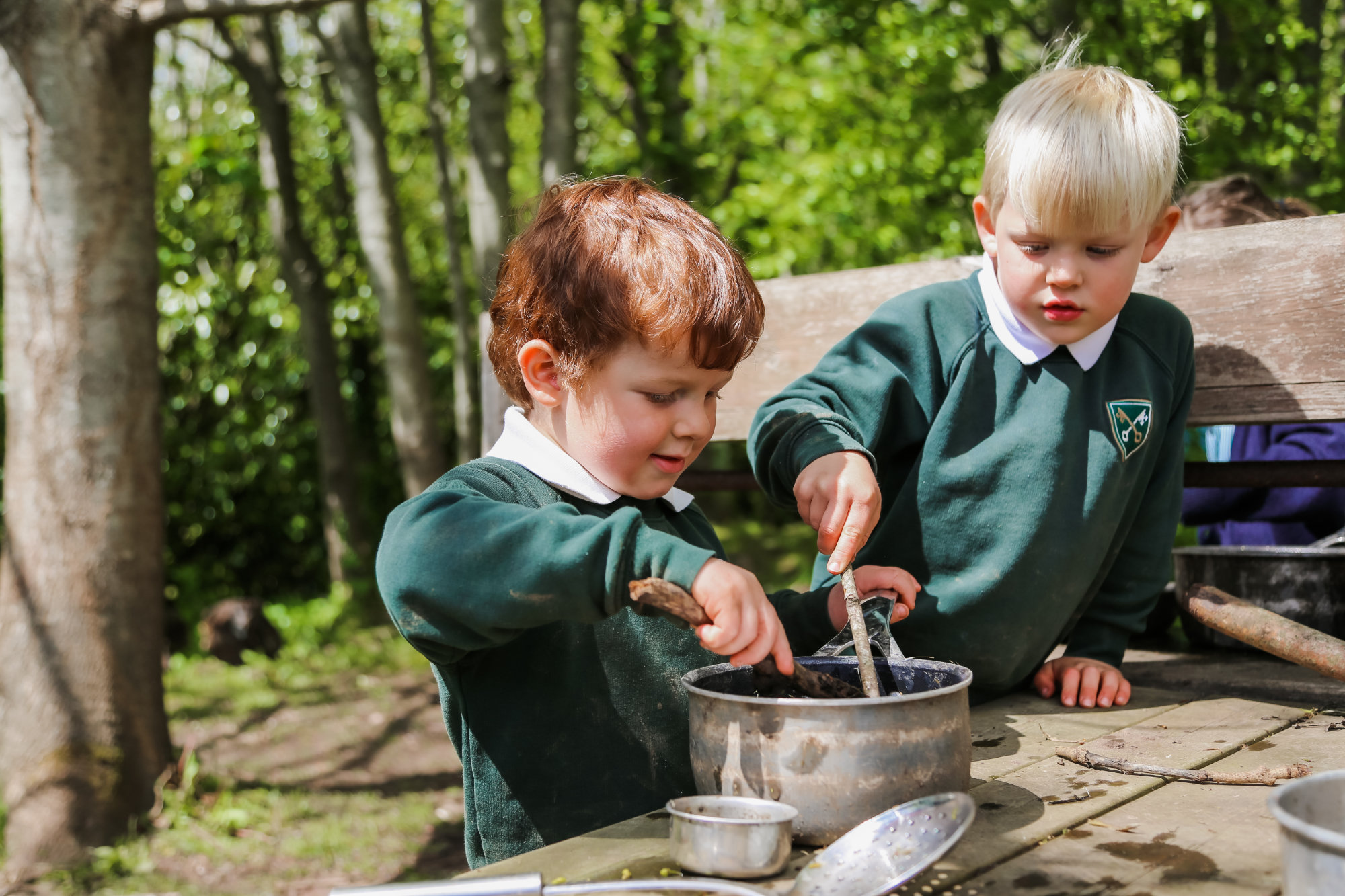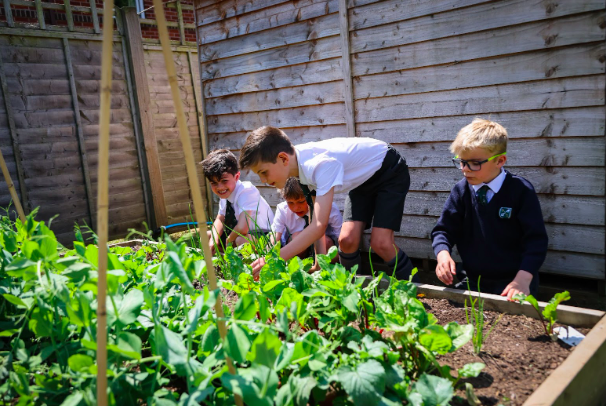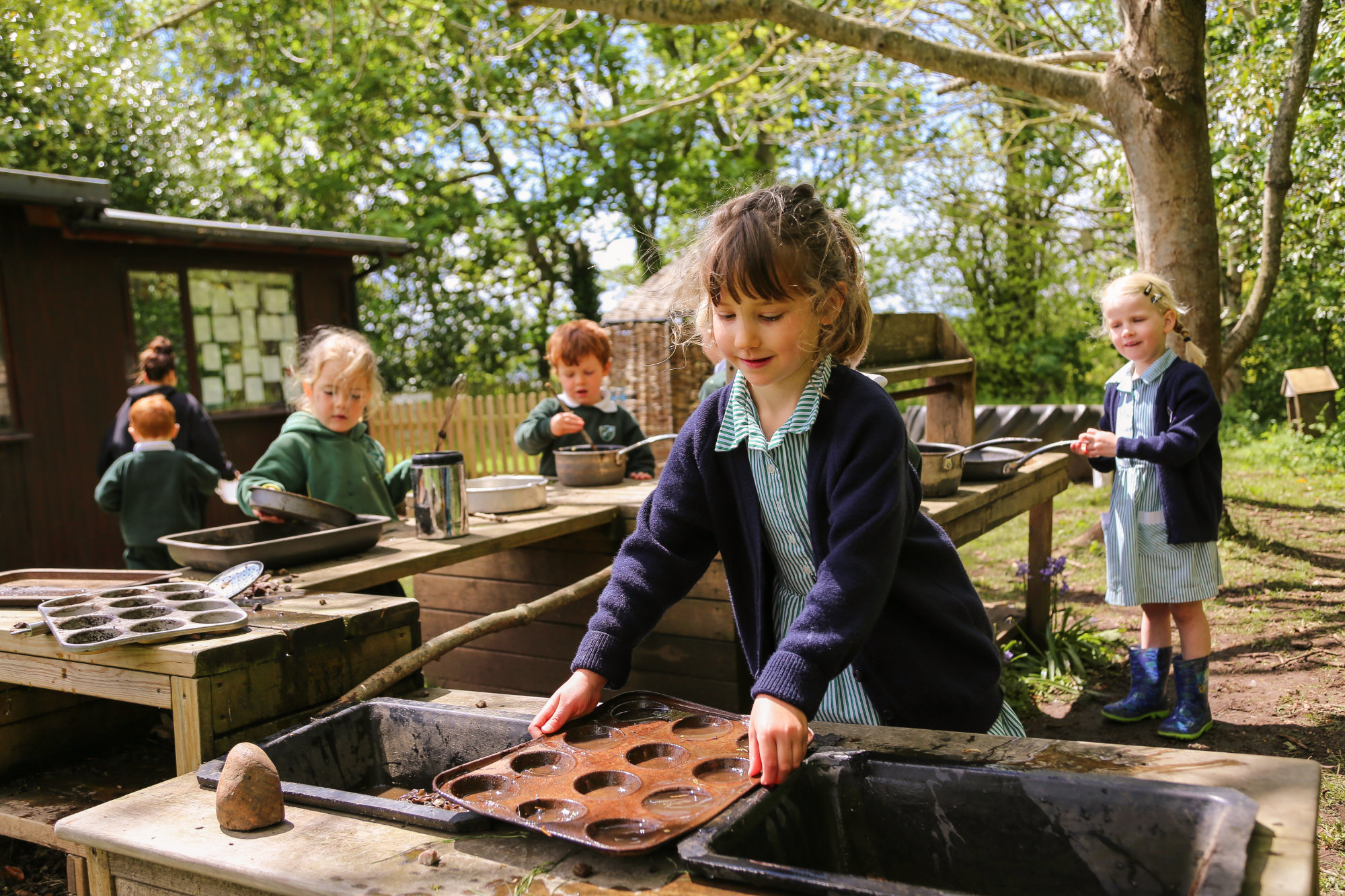Encouraging children to become more independent is vital for personal development. Independence allows children to be resilient, builds their confidence, gives them a sense of belonging, reinforces who they are as individuals, and improves mental health due to increased self-esteem. But how can we help children develop this vital life skill?
At our independent school in Devon, our approach to teaching encourages our students to build their independence through extracurricular activities and the creative arts, as well as allowing them to explore our nurturing outdoor surroundings safely.
Our values, which include achievement, nurture, endeavour, community, opportunity, and fun, are fundamental to us at St Peter’s Prep. If you’d like to learn more about how we implement our values, our guide below can help.
As parents, although you may be aware of the importance of teaching your child independence, it can often be challenging to enforce. It can be hard for parents to watch their children learn how to overcome their own challenges or to let them go. Parental instinct is to make our child’s life easier; however, children need to be challenged to learn the life skills they’ll need later on.
Here are some simple ways to help your child become more independent while giving them the space, support, and guidance they need.
1. Set Reasonable Expectations
Being a parent comes with many responsibilities, as your child is reliant on you until they become an adult (and, even then, most of us still need our parents’ support and valuable guidance)! However, an excellent way to teach your child to be more independent is to give them the space and expectation to start doing some things for themselves.
Whether tying their shoelaces, making their own breakfast cereal in the morning before school, putting their toys away, or washing up a few dishes after dinner. Setting small and reasonable expectations can help your child in more ways than you may think.
The key here is to encourage children to do a few things for themselves rather than you stepping in and doing it for them every time. Allowing them to become responsible for some tasks can often excite children, as it’s only natural for them to start wanting to be more independent as they grow up.
So, it’s essential to encourage and support them through simple, age-appropriate tasks rather than giving in to the urge to do it for them, which may ultimately restrict them from growing and learning.

2. Give Them Freedom Of Choice (Within Limits)
By giving children the freedom to make their own decisions, within limits, you’re allowing them to build independence and confidence. When parents provide opportunities for their children to make their own choices, young ones learn that their needs, preferences, ideas, and wants are important and valued, which can be very empowering, cultivating self-respect and self-love.
This will also encourage children to think about what choice they want to make, allowing them to analyse the pros and cons of decisions and the impact they have. If your child is feeling overwhelmed and unsure what to decide, it’s a good idea to give them a few choices so they have a starting point and still feel your support.
Choosing hobbies and extracurricular activities is a great way to encourage children to make their own choices while learning about their interests and passions. This gently guides them into becoming their own independent individuals.
3. Give Them Space When They Want It
As children grow up, you’ll notice that they’ll feel more comfortable exploring the world around them and venturing off ahead of you without worrying if you’re right by their side. Whilst it’s always important to have your eyes on your child when they’re young, you can still give them the space they need to start feeling independent.
You can do this by first understanding that it’s only natural for your child to want their own time and space without you. So, encourage your child to explore without being overly-supervised.
Activities like gardening are great, as you know that your child is in a safe environment, but they still have the freedom and space to discover new plants, flowers, and the outdoor world around them without you having to supervise them. But they know you’re there if they suddenly need your help.

At St Peter’s, we encourage our young learners to spend time in our incredible outdoors, believing that learning outside the classroom teaches independence and benefits mental health.
You can read more about our outdoor learning approach below if you’d like to know more.
4. Invite Their Opinion
Encouraging your child to share their thoughts and opinions on a particular topic has many benefits. It allows them to feel heard, develops their cognitive skills as they learn to become more aware and analyse situations, improves their social skills, and makes them feel comfortable voicing their thoughts in the future.
When children feel encouraged to share their thoughts, it boosts their ability to think independently. This skill can be applied to many areas of their personal and social lives, especially in adulthood.

5. Encourage Both Effort and Failure
When you give your child the opportunity to work on a particular task, such as tidying up their toys or getting dressed for school on their own, it’s important that they get praised for their effort, even if they didn’t meet your initial expectations.
By doing so, you end up giving your child the confidence they need to keep trying, reinforcing their self-belief. Encouraging their effort is a great way to allow your child to become more independent, as they’ll start to build confidence in their ability to accomplish small tasks, which will transfer to more significant goals in the future.
On the other hand, if your child is struggling with something or simply believes that they can’t do it, it’s important to be there to give them the gentle guidance they need. Let them know that it’s okay to fail and celebrate their failures as much as their successes.
By teaching them this, your child won’t let the fear of failure stop them from trying new things, but instead, teach them to understand that failure is a normal part of life from which we can learn. This allows them to deal with setbacks better instead of feeling overwhelmed with anxiety and negative feelings, ultimately building their resilience.
If you’d like to learn more about what we offer at St Peter’s Prep and our curriculum, request a prospectus today.












